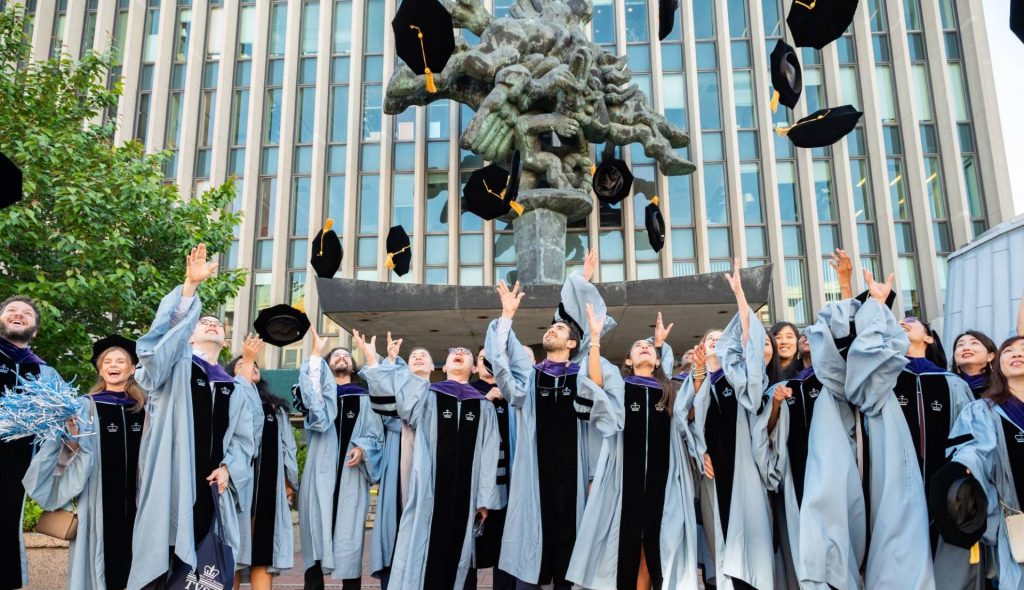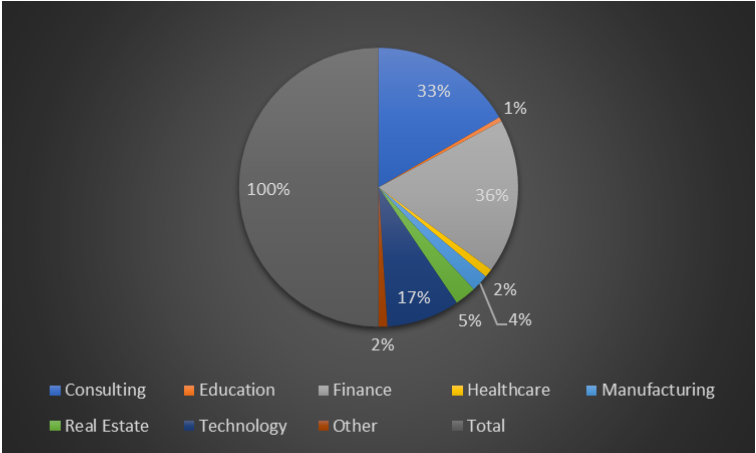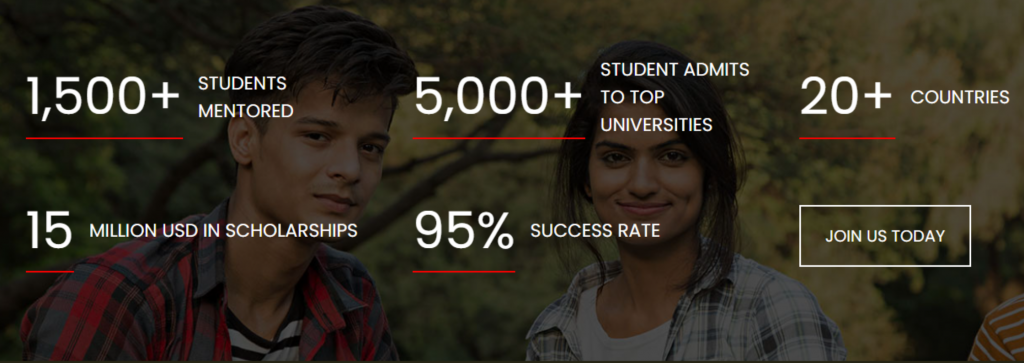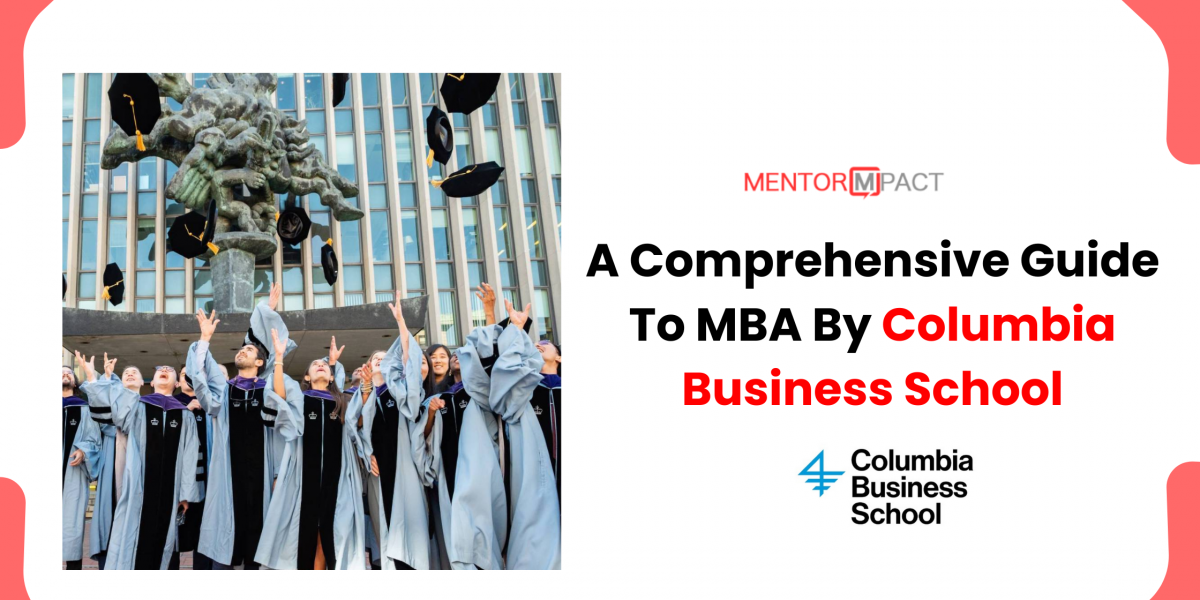A Comprehensive Guide To MBA By Columbia Business School
Columbia Business School was established in 1916, thanks to a substantial donation from banking entrepreneur Emerson McMillin. The inaugural class of 61 students, which included eight women, was taught by eleven faculty members. The School has changed over the last 100 years to keep up with the ever-changing business environment.
Columbia Business School, based in New York City, provides its varied and entrepreneurial students with daily access to key industry leaders. Their illustrious academic members are leaders in their fields, doing ground-breaking research in a variety of topics and developing each year. The global alumni network continues to expand and influence change. In the Financial Times’ Global MBA Rankings, CBS was placed ninth, while in the QS Global MBA Rankings, it was ranked tenth. It was ranked seventh on Forbes’ list of the Best US Business Schools and sixth on US News’ list of the Best Business Schools in the United States.
Mission and Vision
Columbia business school says- “Our mission is twofold:
- We are committed to educating and developing leaders and builders of enterprises who create value for their stakeholders and society at large
- We accomplish this through our MBA, MS, PhD, and Executive Education programs.
- We are equally committed to developing new scholars and teachers, and to creating and disseminating pathbreaking knowledge, concepts, and tools which advance the understanding and practice of management
- We accomplish this through our faculty research and PhD programs.”
Values they look for:
Columbia Business School attracts intellectually motivated students from a variety of educational, economic, social, cultural, and geographic backgrounds. While the student body is diverse, there are some characteristics that students share, such as excellent leadership skills, a track record of performance, and the ability to work in groups. Some main qualities are:
- Entrepreneurial mindset
- Team leadership
- Social intelligence
- Community leadership
- Integrity
- Analytical ability
Faculty
The CBS faculty is divided into five academic units: accounting, decision, risk, and operations, finance and economics, management, and marketing. There are approximately 150 full-time academic staff members on the CBS faculty. Professors at CBS are at the forefront of developing new business ideas, and they work with organizations all around the world. They keep students up to date on new ideas in their chosen field and educate them how to apply these concepts in their own businesses. They take classes together in the MBA core curriculum, which allows them to combine previously disparate fields. Top business executives from New York City attend classes, offer advice, and assist students with networking, setting the groundwork for future success. Here is the list of Columbia’s faculty.
Programs Offered
MBA, executive MBA, executive education, doctorate, and Master of Science programmes are all offered by CBS. Faculty teach students how to generate new solutions based on their research and industry expertise as part of the MBA programme. CBS students benefit from easy access to New York City since they are incubated in an international setting that is a favourite target of top business leaders for programmes such as Executives in Residence, Master Classes, and conferences. The school’s ideology distils the finest of entrepreneurship, allowing students interested in a variety of fields to pursue their own projects. Here is the full list of all programs offered by CBS.

Student Clubs
There are over 100 unique student clubs at Columbia Business School, ranging from clubs centred on career development to those honouring sports or microbrewing. These organisations can allow you to expand your network, connect you with employment opportunities, provide hands-on leadership skills, and enhance your life in university and even beyond. Clubs like the Columbia Entrepreneurs Organization, which encourages prospective and current student entrepreneurs to research and develop new enterprises, and the Investment Management Association, which hosts pitch practises and case competitions for future investors and many more can be found on campus. Here is the list for the amazing student clubs of CBS.
Curriculum
The MBA core curriculum lays the framework for business knowledge through case-based courses and collaborative learning, while electives assist students comprehend specific areas. The MBA is a diverse curriculum thanks to Master Classes, the Industry, Business, and Society Curriculum, and Columbia CaseWorks. The group concept encourages students to interact academically. Each class lasts 90 minutes, with a 15-minute break in between. Two full-term courses and eight half-term courses make up the core curriculum. Exemption tests are held before each semester to allow students with proficiency in specific areas to replace core coursework with electives.
There are no official majors or concentrations in Columbia’s MBA program. Students might, however, opt to specialize in one of Columbia Business School’s 15 academic areas. Accounting, Private Equity, Value Investing, Social Enterprise, and other academic subjects have research institutes, programs, and student clubs affiliated with them. Corporate finance, managerial statistics/economics, leadership, and business analytics are among the core courses. There are over 325 electives available, as well as 4,000 graduate-level classes and dual-degree programs to choose from. Applied value investing, family business management, healthcare, impact investment, and managing brands are all popular electives. You can get more information here.
MBA Application
Candidates with strong work ethics, a desire to create personal and professional relationships, and a desire to make a difference in the world are sought by CBS MBA admissions officers. Bachelor’s degree, GPA/GMAT score and essays, two references (one from the candidate’s current supervisor and one from a past direct supervisor, adhering to two CBS requirements), are all required. Interviews are by invitation only. Application essays are as follows:
- Through your resume and recommendations, we have a clear sense of your professional path to date. What are your career goals over the next 3-5 years and what, in your imagination, would be your long-term dream job? (500 words)
- Why do you feel Columbia Business School is a good fit for you? (250 words)
- Tell us about your favorite book, movie, or song and why it resonates with you. (250 words)
Scholarship and financial aids
CBS offers mostly need-based scholarships, with many students receiving partial tuition scholarships. Scholarships based on merit are also available. Typically, awards range from $7,500 to $30,000. Fifty percent of applicants are awarded need-based scholarships worth $20,000 on average. The majority of scholarships are renewed for the second year. Need-based awards, on the other hand, are not guaranteed, and CBS advises candidates to seek external scholarships from foundations and corporations. The Forté Foundation scholarships and the Toigo Fellowship are merit-based scholarships given by the institution in collaboration with external organisations. MBA students may also be eligible for merit-based and need-based financial aid. You can grasp full information here.
Placement by industry
The industry wise placement is as follows:
| Industry | Placement % |
| Consulting | 33% |
| Education | 1% |
| Finance | 36% |
| Healthcare | 2% |
| Manufacturing | 4% |
| Real Estate | 5% |
| Technology | 17% |
| Other | 2% |
| Total | 100% |

Alumni network
The CBS alumni network, which includes approximately 44,000 graduates from all courses, is made up of 80 local, foreign, and affinity groups located all over the world. Reunions, annual dinners, and pan-international gatherings are among the activities followed every year for alumni networking. Among CBS’s graduates are Mitch D. Albom, Fred P. Hochberg, Elle Kaplan, Robert M. Bakish, Henry Kravis, Benjamin M. Rosen, Vikram Pandit, Harvey M. Schwartz, Ira Trivedi, Diana L. Taylor, Seungpil Yu and many more.
Experiential Learning
At CBS, students take pride in the depth of experiential learning. The nature of business education is changing, as are the types of professional responsibilities CBS’s students seek. As a result, students’ skills must also evolve and expand. CBS’s students benefit greatly from the CBS experiential learning methodology, which allows them to learn from teachers and practitioners who share their experiences in real time. Their students have heard from Henry Kravis ’69, James Gorman ’87, Liberty Media’s CEO, Debra Perelman ’00, on topics ranging from leadership to social justice to innovation.
Inside and outside of the academic classroom, the experiential learning opportunities are unrivalled. In small groups, renowned people discuss cutting-edge ideas, leadership styles, and personal beliefs with students and faculty. At Columbia, the Tamer Center for Social Enterprise is strongly linked to the experiential learning component. Students can participate in projects such as the International Development Consulting Project Fund and the Nonprofit Board Leadership program through the centre. For more information, visit here.
Research Centres
Columbia research centres, programs, and institutes help to facilitate a lot of the cutting-edge research that happens at Columbia Business School. Many centres provide programs for the students in addition to undertaking research and having an impact on real-world business. The research experience might be used as a talking point in employment interviews. Finally, the research can help to improve the reputation and prestige of their degree, increasing their own value in the job market. Their effort results in courses, academic programs, community outreach, working papers, published research, and academic-industry-government collaborations. The list for Research centres of CBS is here.
Startup/Entrepreneurship
The entrepreneurial mindset is at the heart of Columbia’s concept. Their Entrepreneurship courses will educate you how to value your own initiative and how to apply such abilities to any business venture. The MBA program emphasizes spotting, recognizing, and seizing opportunities. Whether as entrepreneurs, consultants, financiers, or CEOs, virtually all business leaders will rely on these abilities. Many entrepreneurs who began their careers at Columbia are now establishing profitable businesses from the ground up. You can explore the resources and the available courses here.
Mentor Mpact – Your Trusted Partner in MBA Admissions

- Personalized Application Strategy: Our experienced consultants will work closely with you to create a tailored application strategy that highlights your strengths and addresses your weaknesses head-on.
- Strengthening Your Weaknesses: We’ll provide you with targeted guidance and preparation to transform your weaknesses into strengths, ensuring a compelling application.
- Comprehensive Essay Assistance: Crafting a powerful essay is vital. Our skilled consultants will help you articulate your journey, experiences, and aspirations effectively.
- Optimal Recommender Selection: The right letters of recommendation can make a significant difference. We’ll assist you in choosing recommenders who can eloquently highlight your strengths and improvements.
- Interview Preparation: A successful interview is the final step. We’ll equip you with the skills and confidence needed to ace your interviews, even addressing questions about your weaknesses.
Contact us to know more!

